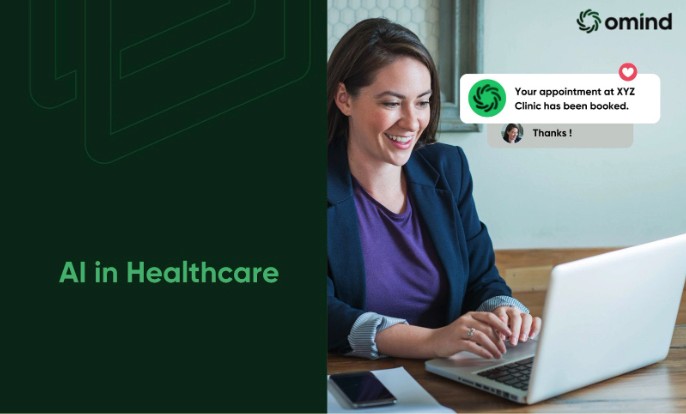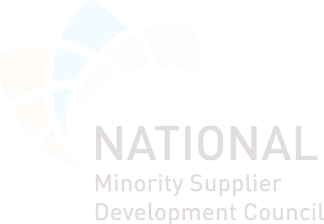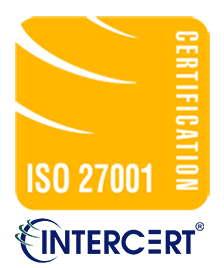Artificial intelligence (AI) is rapidly transforming healthcare, and the world is only getting better for it. A survey by Deloitte reveals that over 53% of respondents believe that AI will revolutionize healthcare in the years to come. The global market for healthcare is expected to reach a CAGR of over 39% by the year 2030. Beyond the marketing hype, AI in healthcare is slowly delivering tangible benefits, reshaping how patients receive care and how healthcare providers operate. This article explores key AI trends driving healthcare innovation in 2024.
Speeding Up Administration In Healthcare
Healthcare administration is often bogged down by time-consuming tasks that divert resources from patient care. AI is making inroads here by helping healthcare centers in automating routine processes. From handling insurance claims and eligibility checks to scheduling appointments and managing medical records, AI significantly enhances efficiency. Machine learning algorithms analyze vast datasets to optimize workflows, reduce errors, and accelerate revenue cycle management. Over 72% of the world’s healthcare leaders believe that AI can be trusted for non-critical but important tasks in healthcare like the ones we have listed.
AI is a game-changer in patient engagement. By automating appointment reminders, delivering personalized health information, and facilitating efficient communication, AI strengthens the patient-provider relationship. Moreover, AI-powered chatbots provide accessible support, answering patient inquiries and offering guidance. This enhanced engagement leads to improved patient satisfaction and better adherence to treatment plans.
The healthcare industry generates enormous amounts of data. AI excels at managing and extracting valuable insights from this data. By automating data entry, cleaning, and analysis, AI ensures data accuracy and supports informed decision-making. This data-driven approach enables healthcare organizations to optimize resource allocation, identify trends, and improve overall healthcare delivery.
AI as a Diagnostic Powerhouse

AI is revolutionizing medical diagnosis through its exceptional ability to analyze complex medical images. Algorithms are trained on vast datasets of labeled images to recognize patterns and anomalies with unparalleled precision. This capability is particularly valuable in detecting diseases at their earliest stages when treatment is most effective. The UK’s National Health Service is already using 34% of AI for its diagnostics.
Radiology: AI excels in interpreting X-rays, MRIs, and CT scans, identifying subtle abnormalities that might be overlooked by human radiologists. For instance, AI algorithms can accurately detect lung nodules, indicating potential lung cancer, or identify early signs of Alzheimer's disease in brain scans. A study by Euronews shows that many radiologists already are starting to trust AI in their field: Over 75% of them, in fact.
Pathology: AI-powered image analysis assists pathologists in examining tissue samples, aiding in cancer diagnosis and prognosis. By analyzing microscopic images, AI can identify specific biomarkers and cellular changes, providing crucial information for treatment planning.
Ophthalmology: AI is transforming eye care by detecting eye diseases like diabetic retinopathy and glaucoma through image analysis. Early identification of these conditions is crucial for preventing vision loss. Some reports say that AI can detect eye issues with over 93% accuracy.
Personalized Medicine Takes Center Stage

AI fuels the rise of personalized medicine. By analyzing genetic data, medical history, and lifestyle factors, algorithms tailor treatment plans to individual patients. This precision approach optimizes therapy, reduces side effects, and enhances treatment efficacy. For example, AI-driven drug discovery accelerates the development of targeted therapies, promising breakthroughs in treating complex diseases.
AI-Powered Drug Development
Traditionally, the process of drug discovery has been a lengthy and costly endeavor, often characterized by high rates of failure, as the early days of the COVID pandemic taught us. AI is poised to change this by introducing unprecedented efficiency and precision into every stage of the drug development pipeline: Research by Nova One Advisor shows that the market for AI-enhanced drug discovery will reach a CAGR of over 30% by the year 2033.
By analyzing vast datasets of biological, chemical, and clinical information, machine learning algorithms can uncover intricate patterns and correlations that would be imperceptible to human researchers. This approach enables the rapid identification of promising drug targets, significantly reducing the time and resources expended on dead-ends.
AI is also instrumental in optimizing drug design. By simulating the interaction between molecules and biological targets at an atomic level, AI can predict a compound's efficacy, safety, and potential side effects with remarkable accuracy, allowing researchers to refine drug candidates with precision, increasing the likelihood of developing safe and effective treatments. This translates to faster access to life-saving medications for patients.
AI for Mental Health Support

The global burden of mental health challenges underscores the urgent need for innovative solutions. In recent years, AI has also emerged as a valuable ally in addressing this crisis. A report from the World Health Organization stressed upon the need to use AI in a digital action plan for improving mental health across the world, which drives home the effectiveness around AI.
AI-powered chatbots and virtual assistants offer accessible, round-the-clock support, providing a lifeline for individuals seeking assistance. Digital health advisory companions can offer a range of services, including providing information about mental health conditions, offering coping strategies, and conducting initial assessments to identify potential mental health concerns.
By simulating human conversation, AI chatbots also create a safe and non-judgmental space where individuals can openly discuss their feelings and experiences. This accessibility is particularly crucial for those who may face barriers to seeking professional help, such as stigma, cost, or geographic location. While AI cannot replace the depth, professionalism, accuracy and complexity of human therapy, it can serve as a valuable first point of contact, offering immediate support and reducing feelings of isolation.
AI can also play a role in early intervention. By analyzing patterns in user interactions and identifying potential red flags, AI-powered systems can alert healthcare providers to individuals at risk of developing mental health conditions. Early identification enables timely interventions, potentially preventing the escalation of symptoms and improving overall outcomes.
The Future Of AI In Healthcare
While challenges such as data privacy and algorithmic bias must be carefully addressed, the potential benefits of AI in healthcare are immense. As technology continues to advance and collaborations between healthcare professionals, researchers, and AI experts deepen, we can anticipate a future where AI serves as a powerful tool for improving human health and well-being.
If you are part of the healthcare industry and have yet to start your journey with AI and automation in your organization, consider giving Omind a try. Omind leverages AI to bring to you a conversational platform that helps visitors engage with your business and turns visitors into paying customers. To see how our platform works, schedule a demo today.
AUTHOR
Team Omind
Empowering Businesses with Unified Customer Experience Platform, Leveraging Advanced AI and Intelligent Automation
PRODUCT
Unified CXM
Share LINK
Related Blogs







